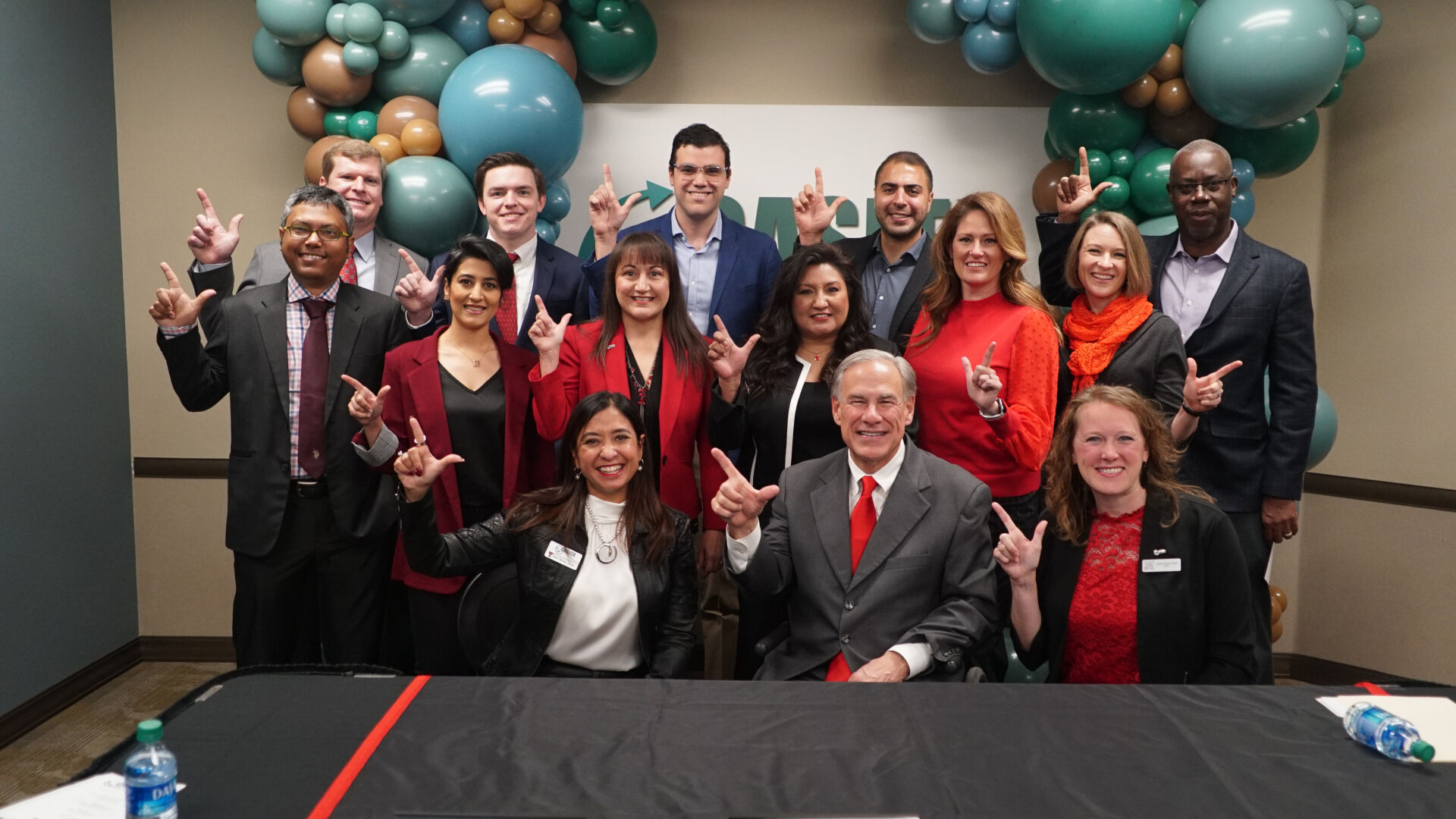Texas Gov. Greg Abbott praised the efforts of Texas Tech University in securing a National Science Foundation Engineering Research Center. He joined Texas Tech President Lawrence Schovanec and Center Director Gerri Botte for a news conference Oct. 25 in launching the Center for Advancing Sustainable and Distributed Fertilizer Production.
In August, Texas Tech received a $50 million grant—the largest in school history —from the NSF for CASFER with a vision to enable resilient and sustainable food production by developing next-generation, modular, distributed and efficient technologies for capturing, recycling and producing decarbonized nitrogen-based fertilizers.
“Today marks a major step for Texas Tech becoming one of America’s leading universities with this important grant from the National Science Foundation,” Abgott said. “The research center will put Texas Tech on the cutting edge of fertilizer research to feed the future of America. Texans must be able to grow our own food, manufacture our own goods and create our own internal supply chain. The leadership at Texas Tech and the National Science Foundation are part of the process that makes us freer, stronger, and more self-reliant.”
As CASFER center director, Botte leads a team spanning four partner institutions looking to create a nitrogen-circular economy while helping secure a sustainable food supply for the world’s growing population.
“This is a fantastic opportunity to lead the world to change agriculture for generations to come,” Botte said. “But we also understand that this challenge is very, very big, so we need a lot more support—federal, state. We need industry. We need partners. We need society visionaries. We need agents of change who will work with us to make the United States and the world a nitrogen-circular economy.”
The grant will allow Botte and her team the opportunity to make a worldwide impact while creating a product that will greatly benefit the farmers of West Texas, sticking with the university’s tradition of serving the needs of the local population while developing world-altering technologies.
“A common theme of these projects is the fact that here at Texas Tech, just as it was 100 years ago, we begin with issues in our backyard,” Schovanec said. “We are an agricultural area as part of our culture. We address problems here that have state, national and global influence.”
ERCs are the largest and most prestigious grants awarded by the NSF. Texas Tech was one of just four universities to be awarded an ERC in 2022 out of more than 200 proposals. Texas Tech is joined on the CASFER project by the Georgia Institute of Technology, Case Western Reserve University, the Massachusetts Institute of Technology and Florida A&M University.




